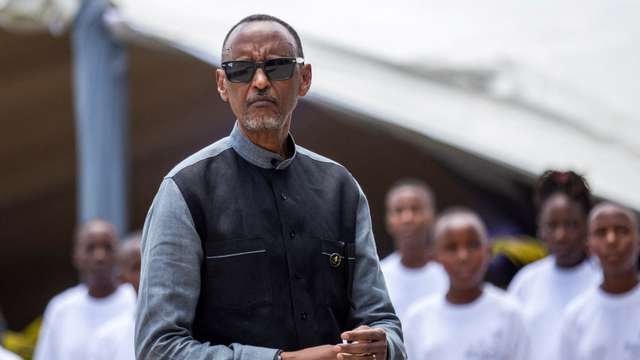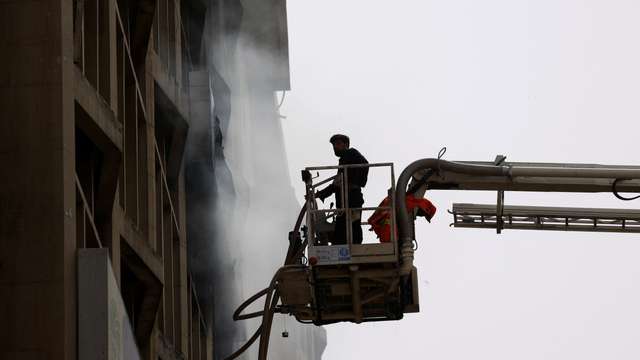This week's biggest stories from the Global South: New government, stock exchange fire, meth production

From the most unprecedented events in the political arena to the most ruthless crimes, we bring you a compilation of top stories from the Global South between July 8- 14.
Here's a summary of the highlights.
Africa
Kenyan president sacks cabinet, bowing to pressure from protests

On Thursday, July 11, Kenyan President William Ruto dismissed his entire cabinet, except for the foreign minister, in response to nationwide protests. These protests, led by the youth against proposed tax hikes, have escalated into the most significant crisis of his two-year presidency. Initially peaceful, the demonstrations turned violent, resulting in at least 39 deaths in clashes with the police last month. Read more here.
Find out the presidential candidates competing in Rwanda's 2024 elections

As Rwanda nears its July 15 presidential elections, the National Electoral Commission has confirmed three candidates for the nation's highest office. Out of nine applications, only President Paul Kagame, Frank Habineza of the Democratic Green Party of Rwanda (DGPR), and independent candidate Philippe Mpayimana were approved to run. Read more here.
Intensifying Congo conflict puts 1 million children at risk of acute malnutrition

More than one million children in the Democratic Republic of Congo are at risk of acute malnutrition due to escalating violence, the World Health Organization reported on Friday. The ongoing two-year conflict between Congolese forces and the Rwanda-backed M23 militia in the eastern regions has severely impacted civilians, displacing 2.7 million people in North Kivu alone. Read more here.
Asia
North Korea's Kim sacks 'irresponsible' officials over new town project

North Korean leader Kim Jong Un has dismissed or demoted several senior officials for their 'irresponsible' management of his flagship project to construct a new town in the country's north, state media KCNA reported on Sunday, July 14. Kim announced during a visit to Samjiyon, where North Korea is developing what it describes as a 'socialist utopia' and 'a model of a highly-civilised mountain city,' featuring new apartments, hotels, a ski resort, and various commercial, cultural, and medical facilities. Read more here.
Pakistan Stock Exchange resumes operations after fire halted trade

Trading at the Pakistan Stock Exchange (PSX) resumed on Monday after a two-hour suspension caused by a fire at its Karachi headquarters. According to a notice on its website, trading was halted at 10:25 a.m. (0525 GMT) and was set to resume at 12:25 p.m. (0725 GMT). Read more here.
Nepal poised for new government after prime minister loses confidence vote

Nepal is poised for a new coalition government under the leadership of politician K.P. Sharma Oli, following the loss of a parliamentary vote of confidence by the more radical Prime Minister Pushpa Kamal Dahal on Friday, July 12, which concluded his tumultuous 20-month tenure. Read more here.
Latin America
Mexico's navy warns dual-use chemicals are boosting meth production

Mexican Navy officials overseeing the country's largest port are increasingly alarmed by the growing influx of unregulated 'dual use' chemicals used to manufacture synthetic drugs like methamphetamine and fentanyl, four Navy officials told Reuters. According to U.S. officials, Mexico is the primary producer of the fentanyl found on U.S. streets. Read more here.
Brazil sees over 100 countries joining alliance against hunger, minister says

More than 100 countries are anticipated to support a global alliance against hunger proposed by Brazil to address the rising number of people facing food insecurity worldwide, a Brazilian minister said. Minister of Social Development Wellington Dias told Reuters on Thursday, July 11, that he will travel to the United Nations next week to advocate for the alliance. Read more here.
In Peru, remains of wealthy pre-Inca people unearthed at ancient capital

Archaeologists in Peru have uncovered the remains of what are believed to be wealthy members of the Chimu civilization, a pre-Inca society that flourished for centuries in the arid plains between the Pacific Ocean and the Andes Mountains. The remains of eleven individuals, estimated to be around 800 years old, were found buried with necklaces, earrings, and bracelets, according to lead archaeologist Sinthya Cueva. Read more here.